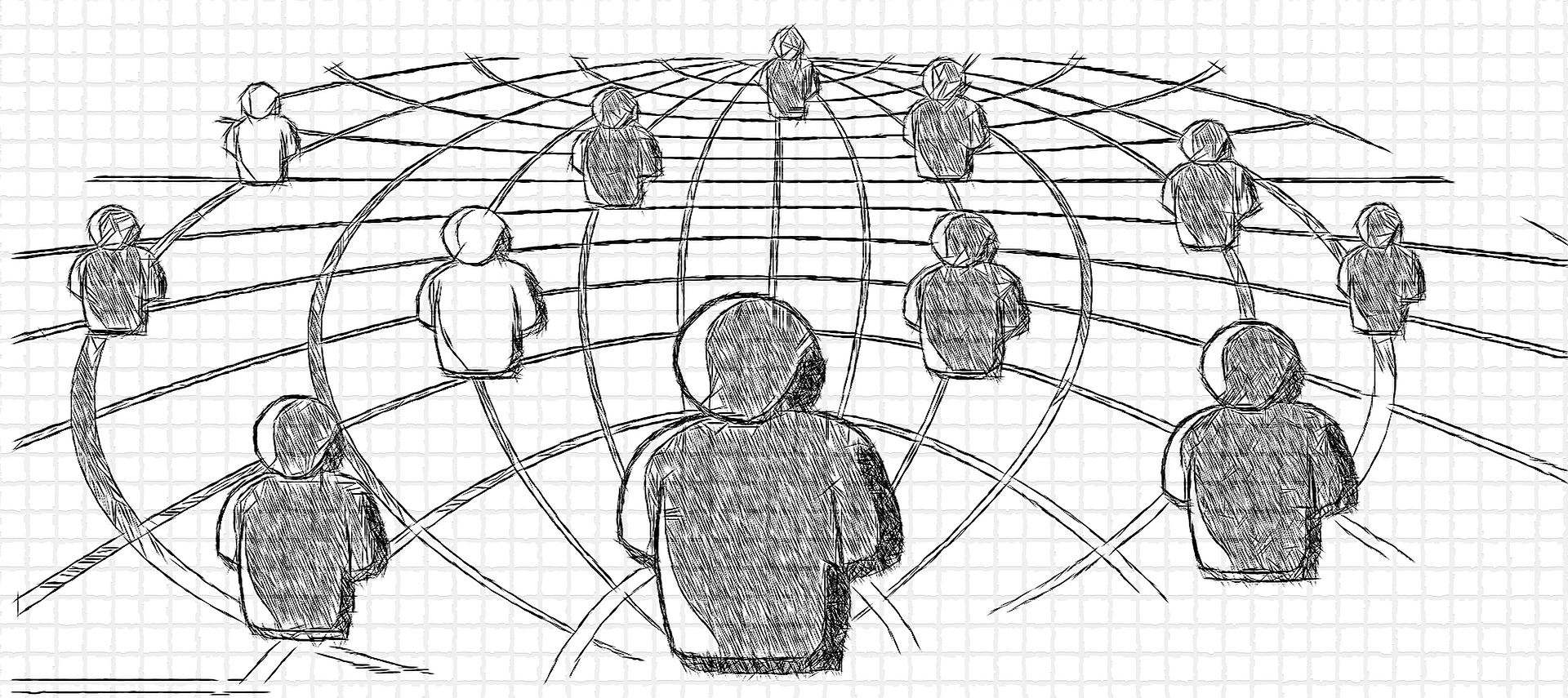Checkout the conversation Niv and I had around planning, the importance in becoming productive. What are the challenges? What are the benefits? Take a listen and let us know what you think.
Consistency
Check out the conversation between Niv and I on the power of consistency
Maintaining Focus
How do you maintain focus during the day? How do you keep distractions away? Take listen and let us know.
Motivation
How do you stay motivated, how do you keep going on your journey? Let us dive in
How to Overcome Procrastination
I confess I am the master of waiting until the last minute to get something done. In my defense it is really hard for me to find motivation before the due date, this is because I suffer from instant gratification.The reality is, we all do and unfortunately all of us procrastinators know that waiting until the last minute is a bad strategy, our work is rushed and never reaches its actual potential. If you are a student your papers don’t get the best grades and if you are a professional you will struggle to get promoted.
So how do you change that pattern? Are there techniques to prevent procrastination? How can they be implemented?
Techniques:
- The deadline effect: One of the most effective forms to get things done is to set deadlines, whether they are set by you or someone else. The book” deadline effect” by Christopher Cox details how businesses are able to meet deadlines, by using techniques such as applying a soft deadline. If a paper or a task is due in a month, set a weekly deadline, this way you can have time to review for e.g draft, review, and final.
- Small rewards: We normally don’t reward ourselves until we finish the big task, but this can hurt us, any small win deserves its own celebration. For example if you need to write 20 pages by the end of the month, try to complete 5-7 in one week, then reward yourself with something you don’t usually do, but really enjoy” e.g like a massage. Your mind will take notice and motivation to finish the next tasks should come naturally .
- Breakdown tasks into smaller chunks: The brain is an efficient machine, but can only operate on small tasks at once, that is why it is very daunting to take on task that say would require “300 pages of writing”, but if you set a small goal such as 10 pages a week, your 300 pages will be done in less than 6 months. In retrospect 6 month is minimal when we compare the average person may take years to complete.
- Go back to your why: The reality is that everyone wants to give their best, however due to circumstances we are unable. Every student wants to get an A, every employee wants to be appreciated, if you are having trouble getting motivated go back and think of the purpose of why you are doing what you are doing.
- Make a plan: “Every minute you spend in planning saves ten minutes in execution,” claims Brian Tracy. Create a plan of how you will execute your tasks and let the magic begin, our minds will look at the plan like a binding contract and will do its best to get you to follow it.
- Just start: Woody Allen, a famous film director, claimed that 80% of life is showing up. Sometimes you just have to sit there and begin doing your work, once you start the heavens will guide you through the rest.
Commitment
Based on the HBR article on procrastination by Caroline Webb, our brains are made to think of concrete work not abstract, so when the task ahead is ambiguous we tend to defer. So how can we hack our brain into thinking differently?.
- Commit to your tasks in public – (social media is a great place, specially if you are looking to share your transformation, say you are looking to lose weight). Research shows that when we commit in public we tend to meet our commitments, because the respect of others matters a great deal to us.
- Set a bet on yourself – Some people go as far as giving money away if they don’t meet their commitments, find something that you know will motivate you to start.
Recovering from a setbacks
For details on setbacks I would recommend listening to the podcast on recovering from setbacks here. In either case here are a few tips.
- Accept that you have fallen behind, and then move on.
- Be easy and forgiving to yourself, putting yourself down will only hurt you more.
- Start small, say when you were at your height you were doing 50 push ups in a minute, perhaps start with 5 and work your way back to the top.
- Don’t forget to rest and take breaks, burnout is real and I believe is one of the main causes of making people stop.
Delivering Value
I’ve been watching sports and inspirational movies lately. The “Miracle”, the US non professional hockey team beating the undefeated Russian team in the 1980’s, a few football inspirational stories, “Remember the Titans”, and “We are Marshall” . They represent teams with odds stacked against them but seem to be able to accomplish the impossible, especially when it matters most. The striking similarities between business and sports pushed me to write this article of the value that is given by each team member:
What is value?
A finished product? Shipped software? The reality is that value is quantified in multiple ways and at times it can be hard to put a specific return on investment. Think of insurance we pay up to cover up in case an accident happens, while there might not be a benefit until we need to use it. As an individual or a manager, think of a sports team, the coach (manager) provides direction and inspiration to the teams, while team members provide unique skills which combined can make the team accomplish big.
Ways I can bring value:
Do what you were hired for:
In a team each member is brought because of their unique capabilities, perhaps you are a developer great at APIs, while your co-worker is great at scaling infra. Before expanding to other areas make sure that you are giving your team the best that you can bring. If you join a basketball team because you’re good at rebounds, make sure you perform in that area before trying to do something else.
What does your team need?
In a sports team each role is defined, in business however some roles have to earn trust to demonstrate that they are capable, before more work can be directed their way. So how do you gain trust? First you need to have candid conversation with your stakeholders and leaders, not just your manager of what they are expecting from you? Which areas do they need help with? Especially when you are new, people will be skeptical of your skills. Make sure you outperform and teams will place trust in you to deliver more work.
Finding the right opportunities?
I used to ask for feedback or what I can do to help someone? This is the wrong approach as people have ways they like to deal with what they know. What people like is when you bring opportunities and exciting challenges to them. So how do you do that?
- Find the right problems
- Infra: Are developers spending too much time deploying software? Is your infra stable?Interview developers and try to understand their pain points.
- Efficiency: Are there tasks and activities that are taking people too long? Are there administrative tasks that people would rather skip? Any areas that you find to be better automated?
- Are there teams that are being underserved? When everyone is prioritizing aggressively there are chances some opportunities are being left behind and not being pursued?
- Risk mitigation: Do you see that people are too risk averse? Are there processes or systems that folks don’t like to touch or change? This is a great opportunity to find ways to demystify or lower the risk of the system, this way the teams are enabled to take on high risk, high reward initiatives without having to worry about breaking the system.
- Revenue generation: Usually these belong on customer facing but perhaps if you are an internal team, you can advocate for features that can grow customer adoption.
- Cost cutting: Perhaps the team is paying a third party vendor for a tool that can be built in house or is no longer needed. There may be old processes that can be deprecated freeing up resources, if they are consultants it can reduce cost to the company.
- Scaling: If engineers are having a hard time deploying at scale, perhaps there is an opportunity to explore here. Remember with any new areas try to POC and sell it to the teams that will give you the hardest adoption once your plan is rolled out.
Networking For Success
You can have all of the talent in the world, but if people do not know about it, it is as if you didn’t exist. Networking should always stay on the top of your mind. In this article I will summarize the HBR article, and share personal experiences on how you can create your own network by properly implementing the techniques described.
Three ways of networking:
- Operational: These are your peers within your work environment– which includes co-workers, your manager or higher ups, and your subordinates if you manage people. Your operational network is important because they allow you to do your assigned work. For individual contributors it is very important to build a strong operational network even outside of your immediate manager. The context and information you can receive, will help you navigate your own team. In terms of priorities, become aware of internal opportunities which you can pivot to, depending on the objectives you are looking to achieve.
- Personal: Your personal network tends to be with people outside of your company, usually people have hobbies. For example, in your free time you may choose to play softball with a community team, the people you meet in that team, can provide external context on how they solve their problems. For example if you talk to a carpenter you can learn how he deals with customers that are not happy with his work, or when there is not sufficient work coming his way, how does he navigate the situation? These are all valuable insights that you can learn and apply to your own life.
- Strategic: The more senior your role is, or the higher you are in an organization, strategic networking becomes more essential. At a leadership position you are paid to be able to successfully prepare your team for the future. This involves not only talking to your personal, and operational network but talking to peers in separate sectors of the market. This is to span your perspective on where the industry is moving. A lot of great leaders, and senior people tend to miss this part of the networking, because it normally carries the larger effort of the three. However in my opinion this type of networking is the most important if you are looking to grow and succeed in your career.
Implementing the techniques:
How do you reach out to someone you don’t know? How can you make that initial connection without being awkward or sound interested, for e.g everyone wants to talk and be friends with the people that have power and resources, what we fail to realize is that you also need to have a value proposition for those contacts to be interested in you as well. Here are some ideas on how to break the ice.
- Join a local community sport/cause/class: e.g Yoga, Softball, Volunteer to services such as your school alumni association, or any other affiliation you may have etc…
- Find what you have in common with people you are looking to connect with. Is your passion magic or a particular music genre? People feel most comfortable when they have something in common. They can share experiences and enjoy the same interest.
- When connecting with someone, be interested in them, leave your ego behind. A lot of us want to play a salesman type, we want to show people that we are worthy and have success of our own. The reality is that most people only care about them and in order for them to become interested in you, you have to become interested in them.
- Using social network sites, I read this blog which talks about a couple moving to a new city. She used LinkedIn to meet with people that were already employed in the field that she wanted to join. She was successful by having over 40+ coffee meet ups where she found her new job, and met new people.“ Ask and you shall receive.
Refreshing and keeping up with your networks:
It is not enough just to meet once, or make a request to someone when you are in need. To build relationships that last, you must work on them and feed them like a plant. Here are some tips to get that done.
- Do regular check-ins, through text or calls.
- Keep your circle small, work on quality rather than quantity
- Make time to be with your friends.
- Be honest, compassionate and a good listener.
- Do your best to be there when they need you the most.
Wrapping up
Creating and maintaining a network of friends is hard work, but in the end that hard work pays off. Whether that is a referral, a new opportunity or simple feedback on your endeavors. Having a strong network pays off, both in the long term and short term. Humans are social beings and people around us provide intrinsic motivation. Go out, create your network and maintain close relationships.
Mental Health
In life as we get older, there are many things we wished we knew when we were younger, that thing for me was mental health. It was always something I thought that was for people that either didn’t have friends or just did not know how to keep their minds occupied. I was wrong and the reality is that we all suffer from mental health whether we realize it or not.
We are faced with multiple emotional challenges at work and at home that we have to deal with in order to live a better life. The fact is, you can be the smartest, most productive person, but if you are unable to control your emotions, emotions will control you and your life.
Becoming aware of your feelings:
The first step in learning how to control your feelings is understanding, why and what is causing your emotions to occur. Here is a list of feelings and how to become aware that you are currently experiencing it.
- Anger: according to the American Psychology association “Anger is a negative feeling state that is typically associated with hostile thoughts, physiological arousal, and maladaptive behaviors”.
- Fear: is when we are scared, while anger is the fight response, fear is the flight response. Based on the meridian dictionary it is an anticipation of danger.
- Anxious: This is when our minds are constantly worrying or thinking about a situation.
- Stressed: When our minds are overwhelmed we feel exhausted, we are not able to process much or do much when we are in this state.
- Sad: Usually when we lose something of value to us. It can be as little as not being able to find our favorite sunglasses.
- Jealousy: There are three types:
- Jealousy towards a partner, perhaps doubts that the person might cheat
- Jealousy towards a family member or siblings
Becoming aware, It is difficult to become aware that you are angry or are fearful because all of your blood has left your brain to your muscles, but this is a good time to try and think about why that interaction has triggered the emotion? You may not be able to get it right the first time, but as soon as you are able to determine the triggers you will be able to recognize the feeling.
There are many more, such as happiness, or pride but I took a shortcut and pointed out these because, if we don’t properly identify them, they can quickly ruin our days if not our lives in some situations:
How to deal with your feelings?
There are multiple ways to deal with your feelings once you have identified them.
- Go on Vacation: if you are experiencing a lot of feelings it is likely that you are hitting a burnout period and your body is on overdrive. A vacation will clear your thoughts and allow you to look beyond your current situation.
- Take a sick day: We need to make mental days normal, there are personal or work events that can impact our mind, we need to have the ability to detach even if it is for a day.
- See a therapist: it is never too late to seek help, a coach or a therapist can guide you and provide more context to your situation. For me, hiring a therapist was what allowed me to get through some of the most difficult times in my career.
- Create an exercise routine: The mind is a muscle just like any other. Just like in order to lift higher weights we do lots of rep, the same concept applies to the mind. The more you challenge it, the more information it will take.
- Call or visit a friend: it is nice to have a friend to share the good moments, but there is nothing more therapeutic than talking to a friend. It doesn’t have to be about problems, it can just be about how they are doing and what plans they have in mind.
Learning to accept
There is a great prayer called Serenity that goes” God grant me the serenity to accept the things that I cannot change, courage to change the things I can and the wisdom to know the difference” . It is a very powerful quote to deal with time. We cannot change the past, only learn from it, and we can only change our future by the actions we take today.
If we can learn to accept our boundaries, our minds work better and are less distracted by things we cannot control.
Maintaining mental sanity
I really like this one saying from the famous motivational speaker Zig Ziglar used to say “people often say that motivation doesn’t last, well neither does bathing and that is why it is recommended daily”. Our moods go up and down based on situations life throws at us and we need to be ready when that rainy day comes by with the proper tools to combat it.
Effective Meetings & Note Taking
I really don’t like meetings that waste people’s time. In today’s competitive environment we have to prioritize our time aggressively. We don’t have the time or the energy to participate in meetings that do not generate value. Now the question becomes, how can we make meetings effective? How can they remain ontrack? How do we keep everyone engaged?
In researching this topic I found that best meeting practices tend to be neglected, because running a meeting is something that comes by with experience. The second part is capturing the outcome of the meeting with notes, to assure people are held accountable and subsequent follow up can be done to any assigned action.
There are many meeting types, but I will focus on meetings of groups of 7-10 people ( this format falls in line with the HBR article on how to run a meeting.
Meeting Operations:
- Before the meeting:
- Why do you need this meeting? Think about the information you are trying to convey or the information you are trying to collect, do you really need a meeting? Can you obtain the same output through an e-mail or a ping? How urgent is your request?
- If you do decide to move forward with a meeting, the most important task you can do is create an agenda and distribute it at least 2-3 days before your meeting.. To go even further not only an agenda with a topic, but a detailed agenda in which you explain what are the outcomes you are looking to achieve.
- Here are some links of great agenda templates to follow:
- Prepare to anticipate the questions of the audience and make sure that any information that is presented is accurate and can be supported.
- Know your audience? What interests them? What do they care about? What are they looking to get from your meeting? What value are you providing to them? What are you looking to get from them?Are you presenting to a group of leaders? Or are you just looking to extract information from a group?
- During the meeting:
- Proper preparation will set you for success, however people’s reactions are unexpected and you know how to use proper tools based on people’s reaction.
- You have two task, manage the people and manage the information you are trying to convey
- Managing the people
- Is your audience engaged with the information you are presenting?
- Are you allowing time for people to ask questions?
- Is the conversation being overpowered by a few individuals?
- Are people distracted?
- Managing the task
- Are you keeping to the schedule? Are the items in your agenda being discussed?
- Are you getting the answers or decisions you were planning or expecting?
- Managing the people
- Meeting Closure:
- 1-2 minutes before the meeting, summarize key points and decisions to finalized agreements.
- Provide a quick timeline when meetings minutes will be distributed
Note Taking:
- Before the meeting:
- Create a template with your agenda items this will
- 1. Keep you focus on what you are trying to accomplish,
- 2. Keep your notes organized and allow you to capture the key decisions of the conversation.
- Create a template with your agenda items this will
- During the meeting
- Using your template jog down the discussion points, not verbatim of the outcome of a conversation: Say you are showing that “we need to add 200 more subscribers to an app to meet revenue goals”: Your notes should capture if discussed:
- Running promotions
- Email campaigns
- Ads in the areas where your future subscribers hang out etc…
- Using your template jog down the discussion points, not verbatim of the outcome of a conversation: Say you are showing that “we need to add 200 more subscribers to an app to meet revenue goals”: Your notes should capture if discussed:
- Distribution
- Should be no later than 12hrs from the meeting time, unfortunately the longer you wait to distribute, the further it will disappear from participants minds. The only exceptions are of course Friday evenings, and late meetings which can wait until the morning for the notes to be distributed.
Creating a Framework to get things done!
Building a productivity blog has been hard, and the level of discipline required has been beyond anything I’ve done before. There are days that I am tired and I just want to watch TV or look at social media, but in order to meet my timelines I have to stay true to myself and perform even when I don’t want to.
Frameworks will vary from person to person based on their schedule, for example for me as a working dad raising two daughters, I have to set up blocks in a time to do creative work.
These are the 5 elements to establish a good framework:
- Consistency: Pick a time, pick a place and do the same activity religiously: Think of brushing your teeth, even if you miss a day at your usual time, look for another time to make it up.
- Energy renewal: Whether it is meditation, going out on a walk or playing the piano. You need to find a way to keep your energy levels high, without it you will lose focus and concentration, which will make it very difficult to get anything done.
- Relevant: I always wanted to build websites as a side gig, but never found the time to build the skill necessary to do it. Now I am spending my time on productivity; because the impact will be immediate.
- Prioritize: The work that makes us grow is difficult and requires a lot of hard thinking. Make sure you are prioritizing this work everyday otherwise you will not be making much progress towards your goal.
- Schedule it: Everyone has ideas but very few people have the drive to implement them, the first step at getting things done is by putting time on a calendar and being strict at doing what you put you were going to do.
Example of using the 5 Elements:
Goal: I want to learn to play the piano.
- Consistency: Everyday I will practice the piano.
- Energy Levels: Every day I will walk/exercise for a combined 1hr.
- Relevant: Everyday I will remind myself that learning to play the piano will help decrease my anxiety levels and increase my focus.
- Prioritize: I will make sure to depriotize all tasks that are not helping me with my future goal so that I can have time to practice the piano.
- I will make sure to schedule practice time on a daily basis at least 30 mins in the morning and 30 mins at night.
Tips on prioritization:
- I watched a quick YouTube video by Yancey Strickler on how to prioritize what you should be doing now to help your future become a reality. The bento box, explaining four quadrants that can help you create your to dos. The other method is the more popular Eisenhower matrix that separates tasks into urgent and important. Please take the time to look these up to learn more about the process.
Final Thoughts:
Without having a good framework to plan your day and complete your tasks, you will struggle to get things done. In this day and age the distractions are endless and we have accustomed ourselves to be very excited by receiving high doses of dopamine levels. In order to be able to achieve your goals, you need to be able to follow a framework.
When I was younger and I literally had all the time in the world to do whatever I wanted, I couldn’t find the motivation. Ever since I’ve been dating someone and now married with children I barely have time to go to the bathroom yet, I’ve accomplished more in a day than what it would take me weeks if not months to do when I was single and with a job that didn’t have a lot of responsibilities.










